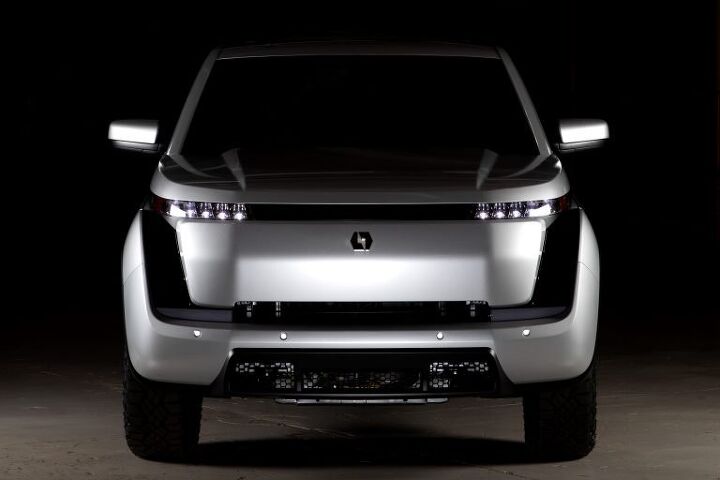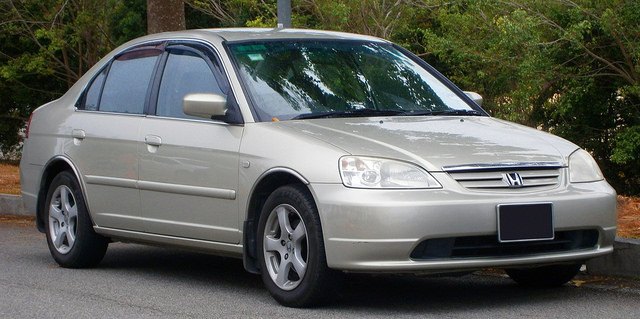#report
Study: Catalytic Converter Thefts Are Slowly Declining
Catalytic converter theft has become a popular pastime for criminals looking to make a quick buck in the United States. Instances of stolen units have absolutely exploded in recent years, reaching a point where some law enforcement departments have gone out of their way to specifically target organized groups bent on stealing the devices.
State Farm is reporting that the situation is finally getting better in America. While technically true, theft rates remain staggeringly high across the country.
VW CEO Suggests Fuel Cell Tech Isn't the Answer, No Duh
Volkswagen Group CEO Herbert Diess was bashing hydrogen-powered vehicles on Twitter this week in an attempt to convince those vying for Germany’s chancellorship not to embrace the technology. With Angela Merkel stating that she’ll not seek a fifth term, the country is open for new leadership and VW wouldn’t want them to take a liking to hydrogen power when it has placed all of its eggs into the electric vehicle basket.
“The hydrogen car has been proven NOT to be the climate solution,” Diess wrote on Twitter in German. “In transportation, electrification has prevailed. Sham debates are a waste of time. Please listen to the science!”
Report: The Government Is Already Using Connected Cars to Spy on You
A recent report from The Intercept has confirmed some of our biggest fears about connected vehicles. Apparently, U.S. Customs And Border Protection (CBP) has struck a deal with Swedish mobile forensics and data extraction firm MSAB for hardware that allows the government to not only siphon up vehicle data but also use it as a backdoor to access the information on your phone.
While this shouldn’t be all that surprising in an America that’s seen the Patriot Act pave the way for all sorts of government spying, the arrangement represents another item in a toolbox that’s frequently used against regular citizens. CBP is alleged to have spent $456,073 on a series of vehicle forensic kits manufactured inside the United States by Berla. Internal documents suggest that the system was unique and of great interest to the U.S. government, with a multitude of potential applications pertaining to automotive data. But what surprised us was just how much information carmakers thought their products needed to keep tabs on and how that plays into this.
Hindenburg Research Report Lambasts Lordstown Motors, Fabricated Orders
Hindenburg Research, the firm that outed Nikola for overselling its technology in last year’s scathing report, has selected a new target. The company in its crosshairs this time around is Lordstown Motors. While the investment research firm stopped short of saying the Ohio-based manufacturer committed fraud, it came extremely close. On Friday, Hindenburg alleged that Lordstown is stringing investors along, will be unable to adhere to its existing production targets, and fabricated sales to make the business appear more appetizing.
“Lordstown is an electric vehicle [special purpose acquisition company] with no revenue and no sellable product, which we believe has misled investors on both its demand and production capabilities,” reads the report. “The company has consistently pointed to its book of 100,000 pre-orders as proof of deep demand for its proposed EV truck. Our conversations with former employees, business partners and an extensive document review show that the company’s orders are largely fictitious and used as a prop to raise capital and confer legitimacy.”
Overall Vehicle Dependability Down Thanks to Newfangled Gizmos, Apparently
Perhaps we’ve finally hit a point where the old ways actually are the best. Gizmo-centric problems seem more important than ever to J.D. Power and Associates in this year’s dependability ranking, which examined problems experienced over the last 12 months on three-year-old vehicles and highlighted electronic accessories as a major issue.
So, a car that has a rock-solid drivetrain still might not make the grade due to a wonky multimedia system. A good example of this was J.D. Power’s chosen pickup, the Ford F-150. While the Ford achieved top marks for the quality of its interior, exterior, and electrics, the Toyota Tundra possessed vastly superior powertrain reliability.
It’s a similar story with the minivan segment. While the Toyota Sienna was given the crown, the Chrysler Town & Country actually had fewer reported problems in every area except the powertrain — and even that was still rated above average. It makes you wonder how much of the long-term quality being tested here is influenced by J.D. Power’s initial quality categories, which it splits into separate mechanical and “design” groups.
Study: Which Car Models Do Owners Keep for 10 Years or More?
A few billion years from now the sun will swell up, engulf the Earth with its plasmatic mass, and the only evidence of our existence will be a handful of fully operational Japanese cars from the late 1990s.
You probably don’t even need model names, as you’re already imagining them cruising down the street or parked in a neighbor’s driveway. They’re bland, extremely common cars in perplexingly good condition because someone continues to love them.
Now, a new study has shown which car models owners tend to hold on to for longer than ten years. Researchers from iSeeCars.com analyzed over 2.5 million vehicles from the 1981-2006 model years sold in 2016. Ten models were over 1.9 times more likely than average to be held onto by the original owner for better than ten years. While I’m positive you could correctly guess the automakers behind those vehicles, I’m unsure whether you could do the same with the model names.
Driverless Cars Are Coming, But Will Cities Be Ready?
Probably not.
According to a study by the National League of Cities, only 6 percent of future city plans consider the potential impact autonomous vehicles will have in the next few years, including driverless car lanes and scaling back parking as ride-share services become more popular.
The study collected transportation plans of the 50 biggest U.S. cities, as well as the most-populous cities in every state. In all, 69 city plans were amassed and studied for future traffic and road plans.
Despite automakers rushing to put autonomous cars on the road by 2020, the study suggests that many cities won’t be able to adequately accommodate those cars, nor will they adapt fast enough to changing transportation modes that may challenge conventional public transportation and infrastructure wisdom.
Tesla Loses $38 Million In Q3
After reporting a net loss of $38 million in its Q3 filings earlier today, Tesla suffered a loss of over 12% in afterhours trading. The stock, which has grown nearly 80% since the beginning of the year shot down almost $22 since the markets closed on November 5th.
Quote Of The Day: The State Of The Bailout Bill Edition
According to the White House’s just-released report titled “The Resurgence of the American Automotive Business” [ PDF here]:
The U.S. Government provided a total of $80 billion to stabilize the U.S. automotive industry through investments in General Motors (GM), Chrysler, Chrysler Financial, Ally Financial, and programs to support automotive suppliers and guarantee warranties. As of today, $40 billion has been returned to taxpayers. While the government does not anticipate recovering all of the funds that it invested in the industry, the Treasury’s loss estimates have consistently improved – from more than 60 percent in 2009 to less than 20 percent today.
Independent analysts estimate that the Administration’s intervention saved the federal government tens of billions of dollars in direct and indirect costs, including transfer payments like unemployment insurance, foregone tax receipts, and costs to state and local governments.
This is as close as we’ve gotten to a thorough accounting of the full cost of the auto industry bailout, as both GM and Chrysler have erred on the side of counting as little of their own taxpayer support as possible (leaving out aid to their predecessor firms, finance companies and suppliers). On the other hand, it’s also two short paragraphs in a ten page report… and the rest of the document hews pretty closely to Democrat strategist Ron Klain’s advice to the White House, specifically
tell the story with fewer numbers and more emotion; less prose and more poetry
While the media debates whether this means the bailout bill will come to $14b or $16b, it’s becoming clear that the final number won’t make a big difference… at least politically.
As Hearings Loom, Toyota And Congress Gear Up For Battle
Toyota heads up to Capital Hill tomorrow to face the ire of the U.S. House Committee on Oversight and Government Reform in a hearing that’s been subtly named “Toyota Gas Pedals: Is the Public at Risk?” A memo by committee staff [via the WSJ] sets a paranoid tone for the hearing, as the NHTSA investigation widens beyond gas pedals alone:
Attention is now being focused on the electronic throttle control system (ETC) to determine whether sudden acceleration may be attributable to a software design problem or perhaps to electromagnetic interference. The committee staff found numerous complaints made to NHTSA describing sudden acceleration that was not caused by either floor mats or sticky pedals.
Toyota’s Yoshi Inaba will face the brunt of the questioning, although Transportation Secretary Ray LaHood and NHTSA administrator David Strickland will surely face questions about their oversight of Toyota (or lack thereof).























Recent Comments